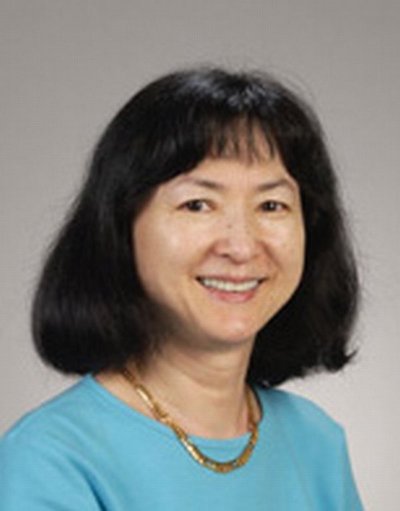September 25, 2008
Annie Lam honored for Asian community-outreach program
By Melinda Young
School of Pharmacy
The International District’s Legacy House — an assisted living facility — recently celebrated 10 years of providing social and housing services to low-income Asian seniors. Annie Lam, a senior lecturer in the UW School of Pharmacy and a graduate from the school herself, served as a consulting pharmacist at the organization for almost that long.
Lam, who is originally from China and grew up in Hong Kong, says her affiliation with the Legacy House allowed her to support a population of people close to her heart. So when she recently received national recognition for an outreach program she helped implement to serve this population, she was thrilled.
The American Society of Consultant Pharmacists (ASCP), a professional association for consultant and senior-care pharmacists, awarded Lam the 2008 Practice Innovation Award for her seven-year Community Outreach Hypertension Monitoring Program.
The program started in 1998, when Lam and Jackie Gardner, UW professor of pharmacy, set out to address the unmet needs in chronic-disease monitoring and management among Seattle’s underserved Asian communities. They focused their efforts on the Legacy House.
The premise of their hypertension-monitoring program was simple. One day a week, during the Legacy House’s congregate lunch program, Lam and one or two UW pharmacy students would measure people’s blood pressure, conduct medication reviews and talk with participants about monitoring hypertension. They also kept thorough records of people’s blood-pressure levels.
To keep things interesting for the participants, Lam and the students created “health passports,” played trivia games about hypertension and delivered language-appropriate interventions. The majority of the students who helped run the program were also bilingual or multilingual.
Overall, the program served more than 440 participants. More than 35 Pharm.D. students were involved.
Lam said the program was so popular among the seniors because “there was no obligation. Participation was entirely voluntary.”
Rather, the participants liked seeing Lam and the students every week and, according to Lam, they kept coming back because they liked monitoring their own progress. In fact, many people who discovered they had high blood pressure improved it through diet and exercise and by seeking regular medical care.
Participants also received help in multiple other ways. Lam recounts one man in particular, a regular, whose blood pressure was especially high one week.
“I asked him what led to the sudden rise in blood pressure. He told me, ‘I ran out of medicine and don’t know how to get refills.'”
He could not speak English and had trouble communicating his needs. Because he had his empty pill bottle with him, Lam called the pharmacy to arrange for refills and contacted his doctor’s office to arrange for interpreter services.
“So many of these people stop taking their medications not because they don’t want to take them,” she said, “but because of economic, language or accessibility barriers.”
ASCP gives its Practice Innovation Award to outreach programs that demonstrate improvements in areas such as quality of care, medication-therapy management or collaborative practice.
Lam will accept the $5,000 award at the ASCP convention in New Orleans in November. She is donating the money to Legacy House, the Seattle Chinatown International District Preservation and Development Authority nutrition program, the ASCP Foundation and two UW pharmacy student organizations.
She will also present a poster and participate in a roundtable discussion at the convention to share her insights and encourage the implementation of similar programs in other pharmacy schools around the nation.



